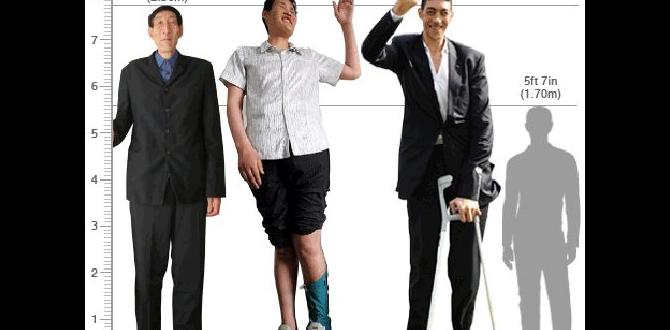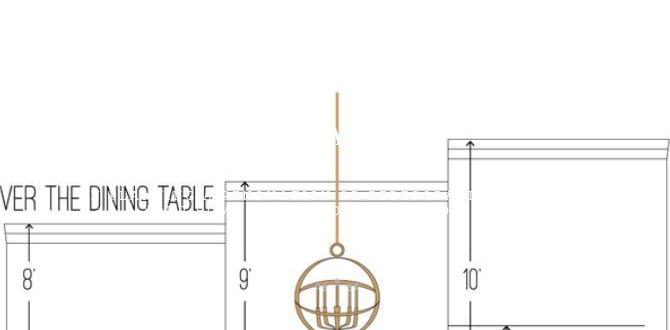Imagine a sunny afternoon, and your dog eagerly plays in the yard. Suddenly, you notice something odd. Your furry friend hasn’t urinated in hours. You might wonder, “Why is my dog not urinating?” This situation can worry any dog owner. After all, your pet relies on you to keep them healthy.
Did you know that dogs typically need to urinate three to five times a day? It’s part of their normal routine. So, when they don’t go, something might be wrong. This makes you think and raises many questions. Is it just a minor issue, or should you seek help?
In this article, we will explore the reasons behind this troubling behavior. You’ll find answers to your questions and learn what you can do. Knowing what to look for can help you keep your dog happy and healthy.
Why Is My Dog Not Urinating? Understanding Possible Causes

Why is My Dog Not Urinating?
Sometimes, dogs stop urinating, and it can be concerning. Lack of urination might indicate a medical issue, dehydration, or a blockage. Did you know that dogs can hold their bladder longer than humans? It’s true! If your pup hasn’t gone in several hours, it’s worth a check-up. Early signs like straining or frequent attempts are signals to watch out for. Don’t ignore these signs; a vet visit can help ensure your furry friend stays healthy.Common Reasons for Reduced Urination
Dehydration: signs and causes. Urinary tract infections (UTIs) and their effects.Many dogs struggle with urination for a few key reasons. One common cause is dehydration. If a dog doesn’t drink enough water, it may not urinate much. Look for signs like dry gums or lethargy. Another reason could be a urinary tract infection (UTI). This can cause pain and make it hard for dogs to urinate. Signs include frequent trips outside with no success. Spotting these signs early can help keep your dog healthy.
What are the signs of dehydration in dogs?
Signs include:
- Dry mouth
- Sunken eyes
- Loss of skin elasticity
What are signs of a urinary tract infection in dogs?
Look for these signs:
- Straining to urinate
- Blood in urine
- Frequent urination attempts
Medical Conditions Affecting Urination
Kidney disease and its impact on urination. Bladder stones or other obstructions.Kidney disease can make it hard for dogs to urinate. This happens because their kidneys do not work well anymore. When kidneys fail, they may not filter waste properly, leading to less urine. Another problem is bladder stones. These stones can block the path for urine. Both conditions can be serious and need vet care.
- Kidney Failure: Reduces urine production.
- Bladder Stones: Can cause painful blockages.
What are signs of kidney disease?
Signs include drinking more water, vomiting, and weight loss. Take your dog to the vet if you see these signs.
The Role of Medications and Diet
How certain medications can alter urination patterns. Impact of diet on hydration and urination.Certain medications can change how often your dog urinates. Some meds can make them thirsty, leading to more trips outside. Others may cause less urination, which can worry you. Diet also plays a big role. If your dog doesn’t drink enough water, they will urinate less. A dry diet could make this worse. Always check your dog’s food and drink to keep them healthy.
How do medications and diet affect urination?
Medications can either increase thirst or reduce urine output. This impacts how often your dog needs to go outside. The right diet helps keep your dog hydrated. Ensure fresh water is always available to support their urinary health.
Points to Remember
- Medications can change urination habits.
- Water intake affects urine production.
- Diet matters for hydration.
Behavioral Factors to Consider
Stress or anxiety and its effects on urination. Changes in routine or environment.Dogs can feel stressed or anxious, just like us! A nervous pup might hold it in, thinking, “If I don’t pee, maybe the monster goes away.” Changes in their routine or environment can shake them up, too. If you moved houses or added a new pet, your dog might not know where or when it’s safe to go. Watch for signs of stress, like excessive barking or hiding. These could be clues to help your furry friend relax!
| Signs of Stress | Possible Solutions |
|---|---|
| Hiding | Give them a quiet space |
| Barking | Use calming music |
| Excessive scratching | Provide toys or distractions |
When to Seek Veterinary Help
Signs that indicate urgency in visiting the vet. What to expect during a veterinary assessment.It’s important to know when to rush your pup to the vet. Look out for warning signs like straining to pee, crying while trying, or having an upset tummy. If your dog hasn’t peed in more than 24 hours, that’s a red flag! You might even think your dog is auditioning for a puppy version of a spy movie with that kind of sneaky behavior!
At the vet, you can expect a thorough check-up. They will ask about your dog’s symptoms and conduct tests, like checking for stones or infections. This assessment helps to find out the issue quickly. Remember, catching problems early can save a lot of wagging tails and heartbreak!
| Signs to Watch | What They Mean |
|---|---|
| Straining to urinate | Might indicate a blockage or infection. |
| Crying while trying | Possible pain or discomfort in the bladder. |
| No urine for 24 hours | Serious issue; seek help immediately! |
Preventative Measures for Healthy Urination
Tips for maintaining proper hydration. Regular vet checkups and monitoring health changes.Keeping your furry friend hydrated is key! Make sure your dog drinks enough water each day. You can even add some chicken broth to their bowl for a tasty twist. Regular vet checkups can catch any sneaky health problems early. Watch for changes in your dog’s habits, like drinking less. If your pup suddenly decides to turn into a cactus and not urinate, that’s a big clue to call the vet!
| Tip | Description |
|---|---|
| Hydration | Encourage drinking by adding flavor or ice cubes to water. |
| Vet Visits | Schedule checkups to ensure your dog is healthy. |
| Monitor Changes | Notice any weird behaviors, like sudden lack of urination. |
Conclusion
In summary, if your dog isn’t urinating, it could be due to health issues, dehydration, or stress. Always check their water intake and environment. If this problem lasts, you should visit the vet. Taking quick action is important for your dog’s health. For more information, read up on dog care articles or consult a pet expert.FAQs
What Are The Common Medical Conditions That Could Cause A Dog To Stop Urinating?Sometimes, dogs can stop urinating because of health problems. Here are a few reasons why that might happen: 1. **Bladder Stones**: These are hard pieces that form in the bladder and can block the flow of urine. 2. **Urinary Tract Infection (UTI)**: This is an infection that can make it hard for your dog to pee. 3. **Kidney Problems**: If a dog’s kidneys are not working well, it can stop them from urinating. 4. **Prostate Issues**: In male dogs, problems with the prostate can block the urethra and stop urine flow. If your dog isn’t urinating, you should take them to the vet right away.
Could My Dog’S Diet Or Recent Changes In Food Be Affecting Their Urination Habits?Yes, your dog’s diet can change how often they pee. If you switched their food, it might have more water or different ingredients. This can make them drink more and need to go outside more often. Always watch for any big changes and talk to a vet if you’re worried.
How Can Stress Or Anxiety Influence A Dog’S Ability To Urinate?When a dog feels stress or anxiety, it can make it hard for them to urinate. Just like people, dogs can get nervous in busy places or when loud sounds happen. This can make their bodies tense up. If your dog is scared, they might hold in their pee instead of going outside. You can help by keeping them calm and relaxed.
When Should I Be Concerned About My Dog’S Urination Patterns And Seek Veterinary Help?You should be concerned if your dog drinks a lot more water than usual. If your dog starts peeing a lot more often, that’s another sign. Watch for accidents in the house, too, especially if it’s not normal for them. If you see blood in the pee, hurry to the vet. We want our furry friends to feel good!
Are There Specific Medications Or Treatments That Might Lead To Decreased Urination In Dogs?Yes, some medications can make dogs urinate less. For example, some painkillers and diuretics can change how much they pee. Always tell your vet about any medicines your dog takes. They can help you understand how these meds might affect your dog’s bathroom habits.








